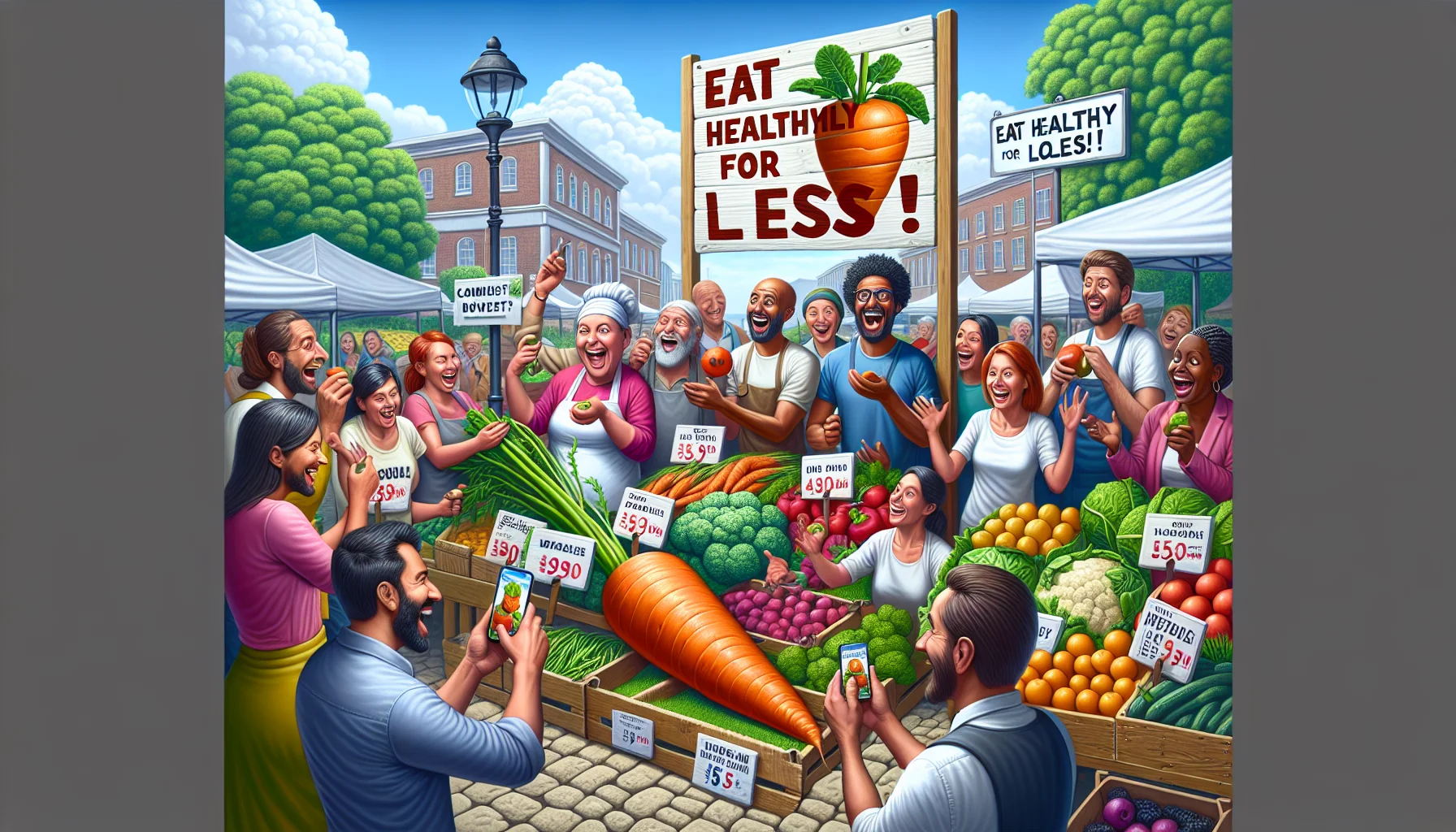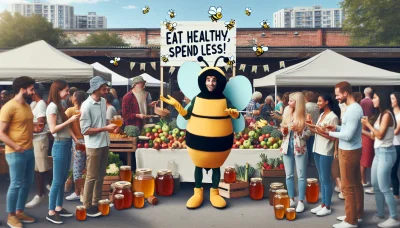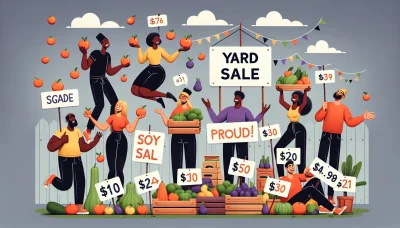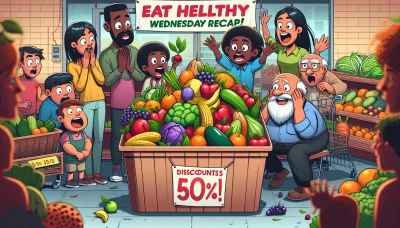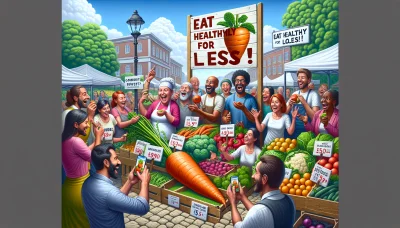Commitment to Local and Fresh Eating Quiz
Test Your Knowledge
Question 1 of 12
Commitment to Local and Fresh Eating
Eating locally sourced and fresh foods is not just a trend but a lifestyle choice that significantly impacts our health, community, and environment. By choosing local produce, you're getting fruits and vegetables at their peak of freshness, ensuring that not only are they packed with more nutrients, but they also have better taste and texture. This practice supports local farmers and economies, reducing the carbon footprint associated with long-distance food transportation. Furthermore, it encourages a seasonal diet, which naturally diversifies your food intake and aligns with the body's nutritional needs throughout the year. Making a commitment to local and fresh eating is a step towards a more sustainable, healthy, and community-focused way of living.
Benefits of Eating Local and Fresh
- Health Benefits: Eating local and fresh foods ensures that you are consuming more nutrient-rich foods. Fresh produce loses nutrients quickly; local foods are sold sooner after harvest, making them fresher and more beneficial to your health. Additionally, local fresh foods are less likely to contain preservatives.
- Environmental Benefits: Local foods travel shorter distances to reach consumers, significantly reducing carbon footprint and pollution. It also supports maintaining farmland and green spaces in your community.
- Economic Benefits: Buying local helps to keep money within the community, supporting local farmers and businesses. This contributes to the local economy, creating jobs and fostering a sense of community.
How to Start Eating Locally
Starting to eat locally can seem daunting at first, but with a few simple steps, you can begin to incorporate more local foods into your diet. Begin by visiting your local farmers' markets to get to know the seasonal produce available in your area. This not only supports local farmers but also helps you eat fresher, more nutritious foods. Next, consider joining a Community Supported Agriculture (CSA) program, where you can receive a share of a local farm's produce regularly. Don't forget to explore local food co-ops and health food stores, which often stock products from local producers. Lastly, try growing your own food, even if it's just a small herb garden on your windowsill. Every little bit helps in connecting with your food sources and making healthier, more sustainable choices.
Seasonal Eating Guide
| Season | Foods to Eat |
|---|---|
| Spring | Asparagus, Strawberries, Peas, Radishes, Rhubarb, Artichokes |
| Summer | Tomatoes, Bell Peppers, Cucumbers, Melons, Peaches, Cherries |
| Fall | Pumpkins, Squash, Apples, Pears, Figs, Brussels Sprouts |
| Winter | Kale, Citrus Fruits, Sweet Potatoes, Turnips, Pomegranates, Dates |
Supporting Local Farmers and Producers
Supporting local farmers and producers is vital for numerous reasons, both for the health of our communities and the sustainability of our environment. When we choose to buy locally, we help to sustain the agricultural landscape and contribute to a stronger, more resilient local economy. This practice reduces the carbon footprint associated with long-distance food transportation and ensures fresher, often more nutritious, produce on our tables. Moreover, it fosters a sense of community by connecting consumers directly with the source of their food, encouraging a better understanding and appreciation for the hard work that goes into farming. By choosing local, we not only enjoy the benefits of fresh, delicious produce but also play a role in preserving the environment and strengthening our communities.
Challenges of Committing to Local and Fresh Eating
- Availability: Depending on the season or region, finding fresh, local produce can be difficult. How to overcome: Research and connect with local farmers' markets, join a community-supported agriculture (CSA) program, or start a small garden to grow your own produce.
- Cost: Often, locally sourced and fresh foods can be more expensive than their supermarket counterparts. How to overcome: Prioritize spending on items that are most important to you, buy in bulk, and consider the long-term health benefits and potential savings on healthcare costs.
- Convenience: It can be more time-consuming to visit farmers' markets or local farms than a one-stop supermarket. How to overcome: Plan your food shopping and meal preparation around your visits to the market. Many local farms also offer delivery services or community drop-off points to make accessing fresh food easier.
- Storage and Preservation: Fresh produce can spoil faster than processed foods, leading to more waste. How to overcome: Learn preservation techniques such as canning, freezing, and drying. Invest in proper storage solutions to extend the life of fresh produce.
- Limited Selection: The variety of products available locally may be less than what's offered in supermarkets. How to overcome: Embrace the opportunity to explore new foods and diversify your diet. Seasonal eating can introduce you to new flavors and recipes that you might not have tried otherwise.
Success Stories of Local and Fresh Eating
John from Springfield shares, "Switching to a diet rich in local and fresh foods has completely transformed my energy levels. I used to rely heavily on processed foods, which left me feeling sluggish. Now, I visit my local farmers market weekly, and the difference is night and day. I've not only lost weight but also feel more vibrant and alive."
Maria from the coastal town of Bayfield recounts, "Eating locally and fresh has deepened my connection to my community and the seasons. Before, I barely knew where my food came from. Now, I have relationships with the people who grow my food. This change has introduced me to new vegetables and fruits that I never would have tried otherwise, improving my health and expanding my culinary skills."
Tom, a city dweller from New York, says, "I was skeptical about the feasibility of eating fresh and local in a big city. However, joining a community-supported agriculture (CSA) program was a game-changer. Receiving a box of fresh, seasonal produce every week has encouraged me to cook more and eat out less, significantly improving my health and saving me money."
Linda from the suburbs of Austin tells us, "After switching to a diet of local and fresh foods, I noticed a significant improvement in my skin and overall health. I suffer from food sensitivities, and eating foods that are in season and sourced locally has helped reduce my symptoms. It's been a journey of discovery, and I'm so grateful for the positive changes it has brought to my life."
